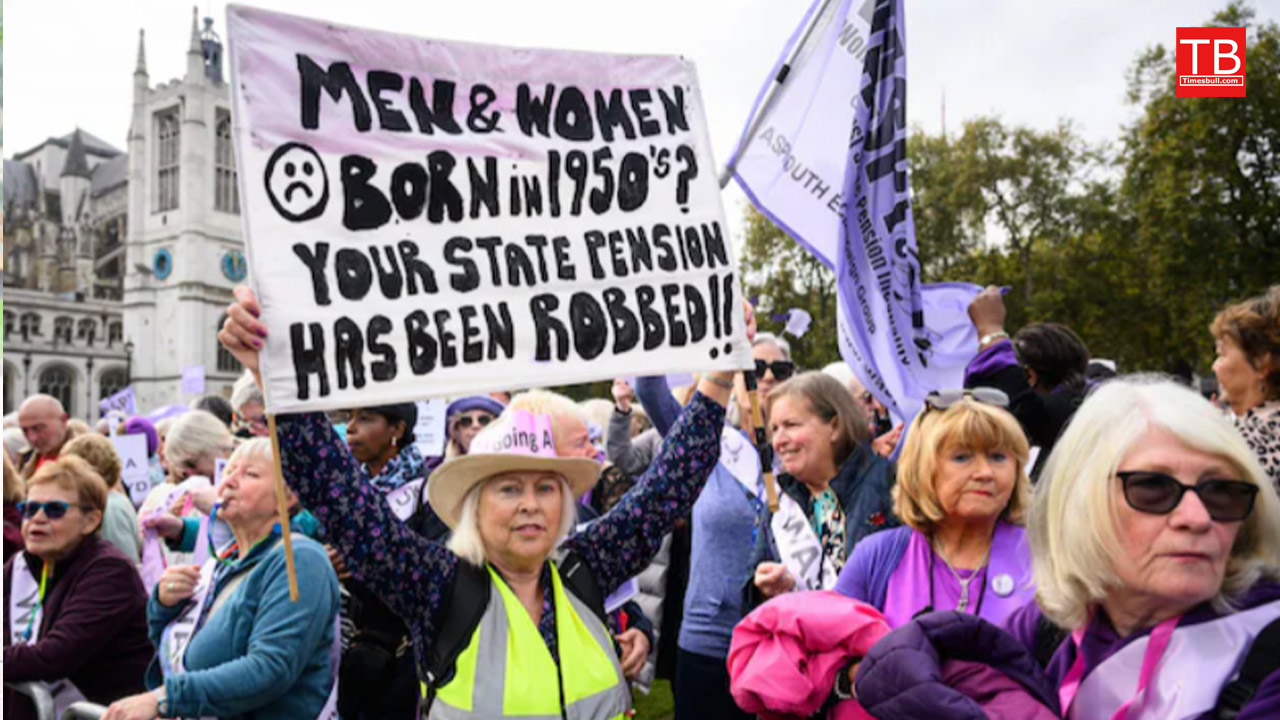The United Kingdom (UK) government’s review and potential increase of the State Pension age has sparked warnings from leading economists that it could have a disproportionate impact on women. According to research by the Institute for Fiscal Studies (IFS), women are more likely to face financial difficulties if the pension age is increased, as labor market participation declines in their late 50s and early 60s.
Employment Gap Between Men and Women
According to Office for National Statistics (ONS) data, only 63% of women aged 55 to 64 are in work, compared to over 70% of men in the same age group. This gap has narrowed slightly since the pension age was equalized at 66, but it remains a concern.
Heavy rain set to continue across UK
IFS economist Heidi Karjalainen said:
“Delaying access to the state pension could push many women into poverty. Women who leave work in their late 50s due to health or low income often are unable to return to employment, increasing the risk of losing their income.”
Why the government is considering raising the pension age
The government review is considering delaying pension increases due in the mid-2040s to the 2030s. This move is part of an effort to control rising welfare costs under the triple lock system, which requires pensions to rise each year at the higher of inflation, average wages, or 2.5%.
According to new salary data, the full state pension will increase by £560 to approximately £12,536 in April 2025. Raising the pension age by just one year could save the government around £6 billion annually, which is crucial in mitigating the aging population and the growing pressure on pension and healthcare services.
Historical Context and Public Reaction
Between 2010 and 2018, the retirement age for women increased from 60 to 65, eventually reaching 66, equal to that of men. This change was criticized, as many women said they were not properly informed. Organizations like Women Against State Pension Inequality (Waspi) demanded compensation and better communication.
Jimmy Kimmel show taken off air after Charlie Kirk comments
Waspi Chair Angela Madden said:
“Clear, timely, and comprehensive communication is essential for any future changes. There are real barriers to employment for older women, and ministers should give everyone a fair opportunity to prepare.”
Long-Term Impact on Women
IFS analysis shows that women working at age 58 tend to stay in work while awaiting their pension, while those who are out of work often do not return, leading to significant income losses and reduced social engagement.
The government has launched initiatives to support older workers, such as the Midlife Skills Review and targeted programs for women, such as Menopause Employment Ambassadors, designed to remove employment barriers and support women experiencing menopause symptoms in the workplace.
The Way Forward
The state pension age will rise to 67 between 2026 and 2028, and is expected to reach 68 by the mid-2040s. Economists warn that without additional support measures, many women could face financial insecurity, further increasing the need for thoughtful policy and communication.
US to invest £150bn in UK, promising thousands of jobs
Frequently Asked Questions (FAQs)
Q: Why will raising the pension age affect women more than men?
A: Women are less likely to be in work than men in their late 50s and early 60s. Women who have left work often fail to return, so delaying their pension increases their risk of income loss and financial hardship.
Q: What is the Pension Triple Lock?
A: The Triple Lock ensures that the state pension increases annually at a maximum rate of average wages, inflation, or 2.5%, thereby protecting pensioners’ income against inflation.
Q: When will the pension age be 67?
A: The state pension age will increase to 67 between 2026 and 2028 and is expected to reach 68 by the mid-2040s.
Q: What support is available for women nearing retirement?
A: The government offers targeted programs such as the Midlife Skills Review and Menopause Employment Ambassadors, which are designed to increase support for women in the workplace and reduce barriers to employment.
